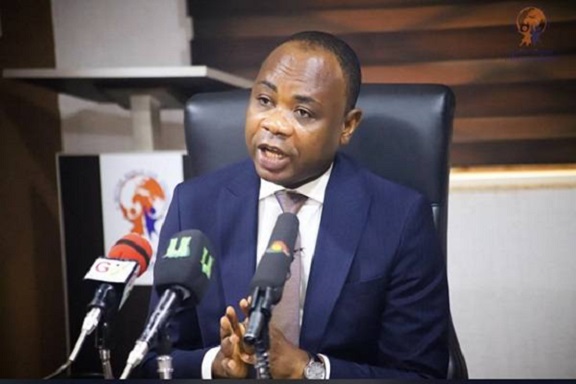Bright Appiah, CRI Boss
The Supreme Court has dismissed a writ filed by Child Rights International, (CRI) a non-governmental organisation, against the Attorney General and Minister for Justice regarding child streetism in Ghana.
The writ filed on March 3, 2022 was seeking among others, a declaration that the Government of Ghana is in breach of Articles 15(1), (2), 13(1) and 35(4) of the 1992 Constitution, for not taking urgent steps to ensure that children receive special protection against exposure to physical and moral hazards as enshrined in the 1992 Constitution.
A seven-member panel of the apex court presided over by Chief Justice Gertrude Torkornoo, in a Bench ruling, indicated that the case was dismissed because the plaintiffs failed to properly invoke the jurisdiction of the Supreme Court.
Justice Gabriel Pwamang, a member of the panel right after the ruling indicated that the case was not dismissed because of the grievances but indicated that, “Your grievance is genuine but your lawyers must come properly.”
The court said its judgement is ready and parties can apply for same.
Other members of the panel were Justices Paul Baffoe-Bonnie, Mariama Owusu, Avril Lovelace Johnson, Prof. Henrietta Mensa-Bonsu, and YonnyKulendi.
Child Rights International went to the Supreme Court seeking to address security threats child streetism is posing to the nation, give meaning to children’s right to education and also ensure that children in Ghana are given proper care like others in advanced democracies.
Streetism is used to describe children who live and work on the streets due to a lack of family ties or worse still, stuck in manipulative relationships, where their guardians (or in certain cases parents) use them to support the household financially, through various activities on the streets.
The writ further prayed the court to state whether on a true and proper interpretation of clauses (1) (c)and (d) clauses (2), (3) and (4) of Article 28 of the Constitution, and clauses (1) and (2) of Article 15, clause (1) of Article 13 and clause (4) of Article 35 of the Constitution, the current conditions of children living on the streets in Ghana are consistent with the said provisions.
It also sought a declaration that the Government of Ghana is in breach of Articles 25(a), 28 (1) (a), (d), (2) (3) (4), 13(1) and 37 of the 1992 Constitution for not taking urgent steps to ensure that children do not engage in work that constitute a threat to their health, education or development, and that children are not deprived of medical treatment, education or any social or economic benefit.
Order
The writ therefore sought several orders, including an order directed at the Government of Ghana to establish Child Protection Units in metropolises, municipalities and districts where child exploitation is high.
It also wanted an order directed at government to define by law penalties for family members, local government units and schools that do not guarantee the observance of children in street situation rights.
Again, it sought an order directed at government to define by law penalties for child exploitation for begging or other forms of economic exploitation, to punish all those who may try to benefit or gain money from children’s work; an order directed at government to improve the law on healthcare, by defining by law the provision of free primary health services to all poor children, children living in street situation or children in emergency situations.
Additionally, it sought an order directed at government to submit to the court, two years from the date of final judgement and thereafter every six months until the expiry of the three-year plan of action, a report particularising all the steps taken, and targets met in obeying the orders of the court.
Reaction
Executive Director of Child Rights, Bright Appiah, disclosed that the Supreme Court said there’s substance in the case and that gives them a window of hope.
He said his lawyers would examine the outcome of the judgement and do what needs to be done, so that they could appear properly before the court.
“These are the lives of our children on the street and we should take advantage of all the existing structures in our system to be able to make a voice with respect to how we should handle matters of this nature. So we will definitely come back,” he said.
BY Gibril Abdul Razak

